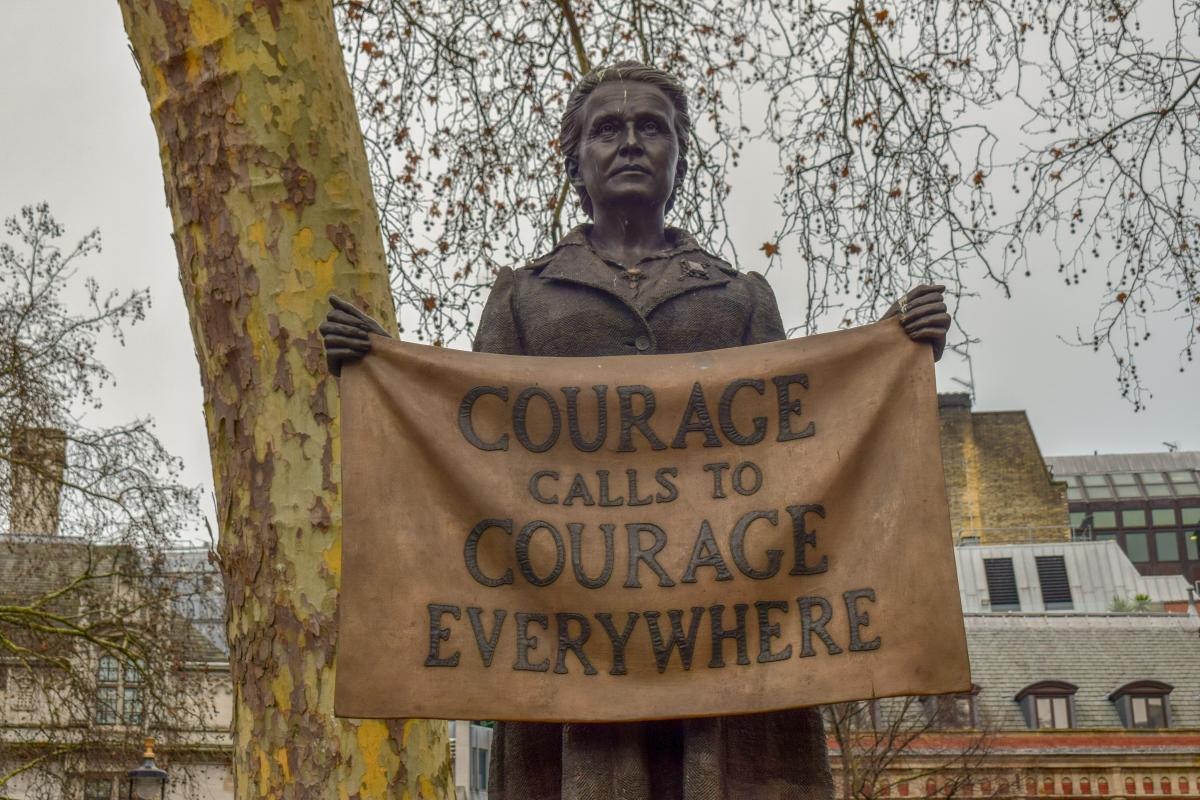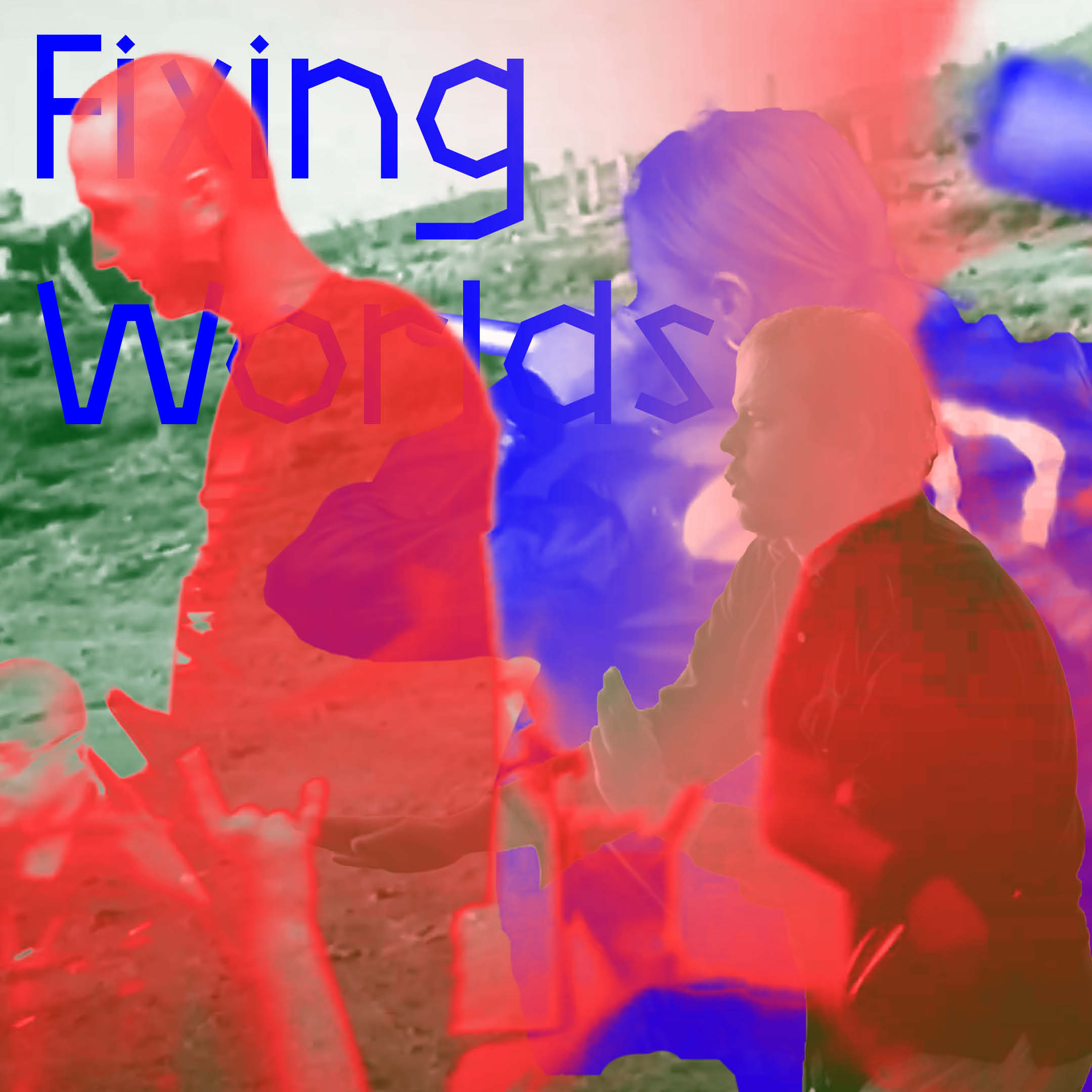
Fixing Worlds: Artistic Activism from a Global Perspective
There are many kinds of activism around the world. As some films from the 9th Norient Musikfilm Festival 2019 show, this depends on the intentions of the persons concerned, and the politics of the places and spaces they inhabit. They portray different attempts of the protagonists' will for change, and give close insights into individual and collective struggles beyond the usual impersonal media coverage, and show how activism feels, sounds, and appears.
When machines break, they can be repaired. When injustice happens, there are no operating instructions for the ones affected by it. Yet, there is a common thread in the long course of history: activism, officially defined as «the use of direct and public methods trying to bring about social and political changes what you and others want» (Cambridge Dictionary).
What you and others want, though, is very diverse, as some of the films screened at the 9th Norient Musikfilm Festival in early 2019 show. Roughly outlined, they suggest two forms of activism: one that derives from personal decisions, and one that springs from sheer existential conditions. While the first form is often voluntary, informed by certain ideologies and directed towards macro-political issues that are usually hidden in the shadows of «capitalism», the latter one is more necessary than voluntary.
It is mostly organized from a micro-political, personal perspective, and directed towards certain systems of inequality: sexism, homophobia, labor exploitation, racism, or even war. While the first activism derives from a reaction towards something that affects people indirectly – it's not capitalism that makes you feel unworthy, but the society that doesn't question its unequal rules of play based on unevenly distributed wealth – the latter is radically immediate and as such, inscribed in the existence of persons concerned.
Counter Narrative to Pop Culture
This occurs for the popular Swedish rapper Silvana Imam. According to Olivia Kastebring, director of the documentary film Silvana, who I interviewed after the screening, the «personal can't be other than political». Especially, she continues, «if you have different labels, being a homosexual, half-Syrian, half-Lithuanian women that performs politically explicit lyrics and is fighting against racism and fascism». In Kastebring's view, Imam can't just ignore the discrimination and structural violence towards her even if she wanted to. Not being an activist was never an option.
By portraying Imam in a complex way, rather than the one-dimensional way in which the media often constructs «activists», Kastebring and her co-directors could be called activists themselves. They tell a counter narrative that is opposed to the dominant one within popular culture, which mostly lacks discourse about the complexities of personalities by just focussing on one specific attribute.
In Kastebrings words: «The media describes Imam often as a ‹strong› feminist. But what is the opposite? Is it weak? It's not very common to use this word strong to describe a man, and yes, she might be strong, but she is also shy and arrogant at the same time. She is a complex character». Iman is portrayed as somebody who is not always already either this or that, but weak and strong at the same, while constantly being an activist in order to be treated equally, and to live free from discrimination or violence.
Activism for Sheer Survival
Under different circumstances, this is also the case for the protagonists in Monzer Darwish's compelling documentary Syrian Metal is War, in which a small group of metal musicians are trying to live and sustain their passion in the midst of the Syrian Civil War. Like Imam, they didn't become activists to do something worthwhile in their leisure time. They were literally forced to act when the Syrian regime claimed their music as satanist. And as soon as the Civil War started, they were left in a world with bleak and deadly conditions.
Similar to Kastebring, Darwish himself is a kind of activist: by literally risking his life when filming the musicians with his smartphone in public, he not only produces close insights into their passionately cultivated islands of self-expression under conditions of war, but also into their everyday life. He presents an important alternative to the abstract body counts or images of buildings in ruin.
The Danish musician and artist Goedipaal, portrayed in Sami Sänpäkkilä's film The Goodiepal Equation, represents the second form of activism loosely described above: the one which derives not from an existential but from an individual decision. Having – in his own words – «grown up on sugar and hate», his work is constantly reacting to politically produced inequality.
A few years ago, he and members of his band collective Goodiepal & Pals, went to the Greek island Lesbos to join the refugee organisation Nurses For Refugees in support of the thousands of people stranded on the beaches hoping for «a better life». Later, Goedipaal and his companions moved to Serbia and rented a flat to house refugees who are forced to live on the street in the absence of an appropriate social service.
Tearing Down the Inner Walls of Europe
«We foremost collected money and cell phones», says Goedipaal when I talked to him in Bern. He further notes that the Hungarian and Croatian police regularly took money from refugees, and sometimes even smashed their cell phones so they couldn't use a GPS signal for orientation. Unlike the Christian tradition of charity with its often one-dimensional, patronizing style of support, the so-called «refugee crisis» entails a big potential to get in touch with new people and new ways of thinking.
«Europe is full of walls that keep other cultures out. But if you take the train to penetrate that wall from the inside, you can enter a new society that is unknown to you». As someone who is concerned with the lack of creative and artistic innovation being produced in the 21st century, he has advice for young European artists: «Take a cheap bus, go to Serbia or Bosnia to help in a refugee camp and you are in the middle of a melting pot of new ideas. You could discuss with curious young non-Europeans, instead of hanging out in Paris or London, repeating the ideas of dead artists and obeying to old European rules.»
The people portrayed in the films, but also the ones who portrayed them, are doing the opposite. By not accepting the world as it is, by not obeying its rules and binary implications, they slowly pave the way for the change that they and others want, so that you or shall I say, we, can get on board too.
Biography
Links
Published on June 05, 2020
Last updated on April 30, 2024
Topics
Why New Yorks’ underground doesn’t give a fuck about Trump or why satirical rap in Pakistan can be life threatening.
Why is a female Black Brazilian MC from a favela frightening the middle class? Is the reggaeton dance «perreo» misogynist or a symbol of female empowerment?
From afrofuturist parallel worlds to decoding strategies of emancipatory sounds: Examinations of music striving for a life worth living.
Snap
